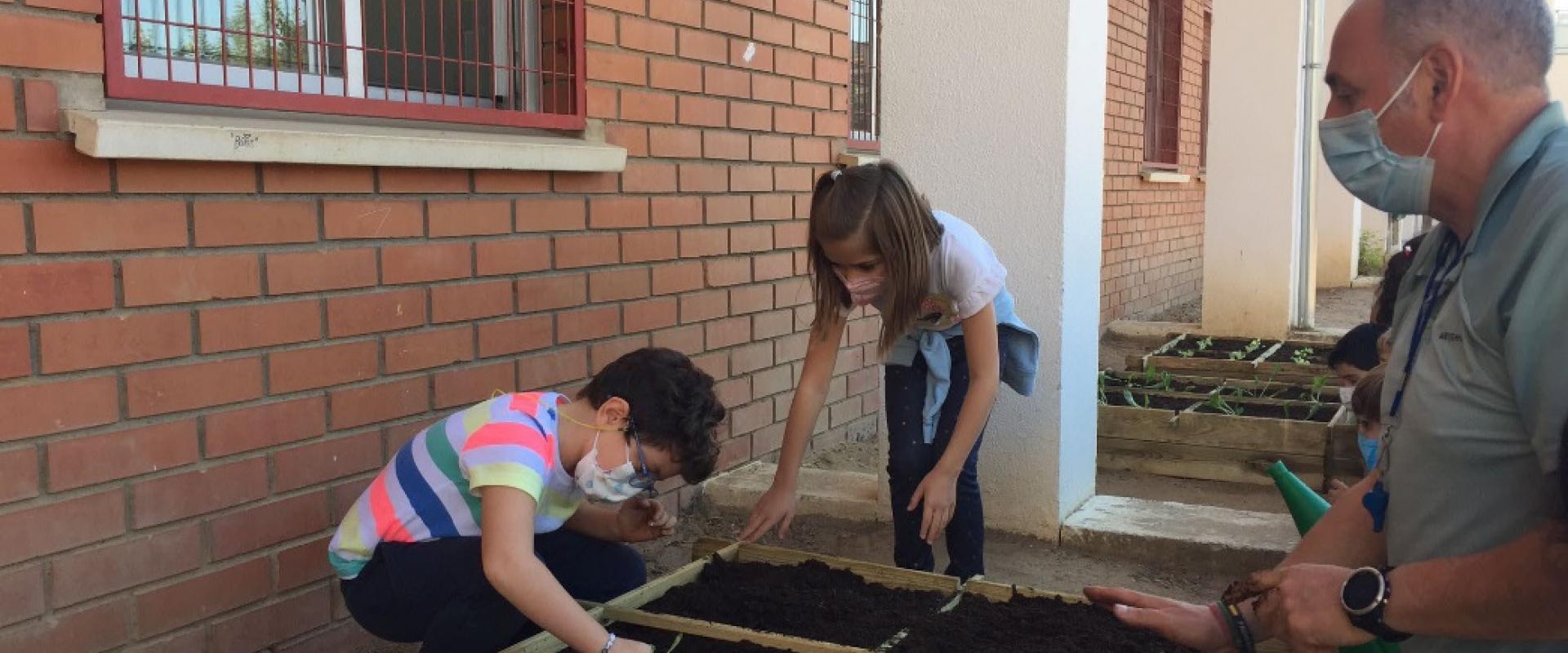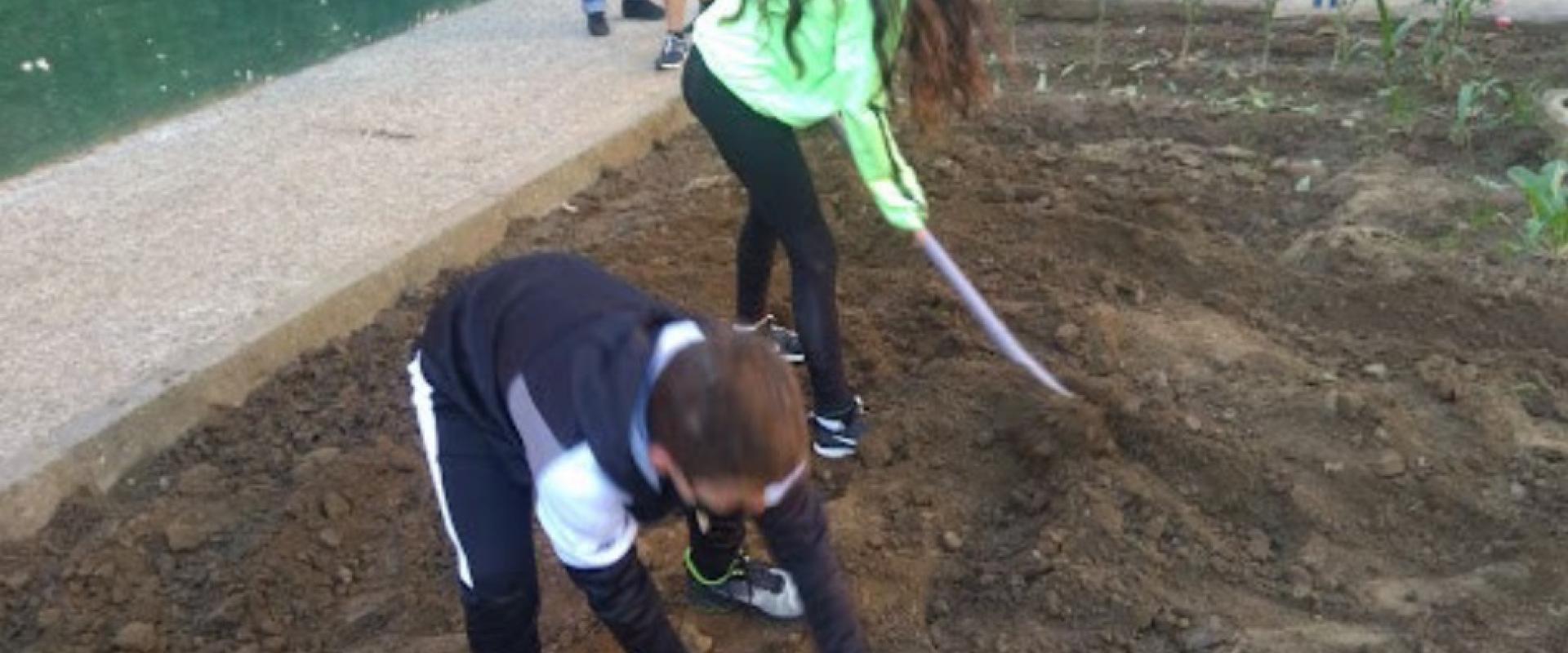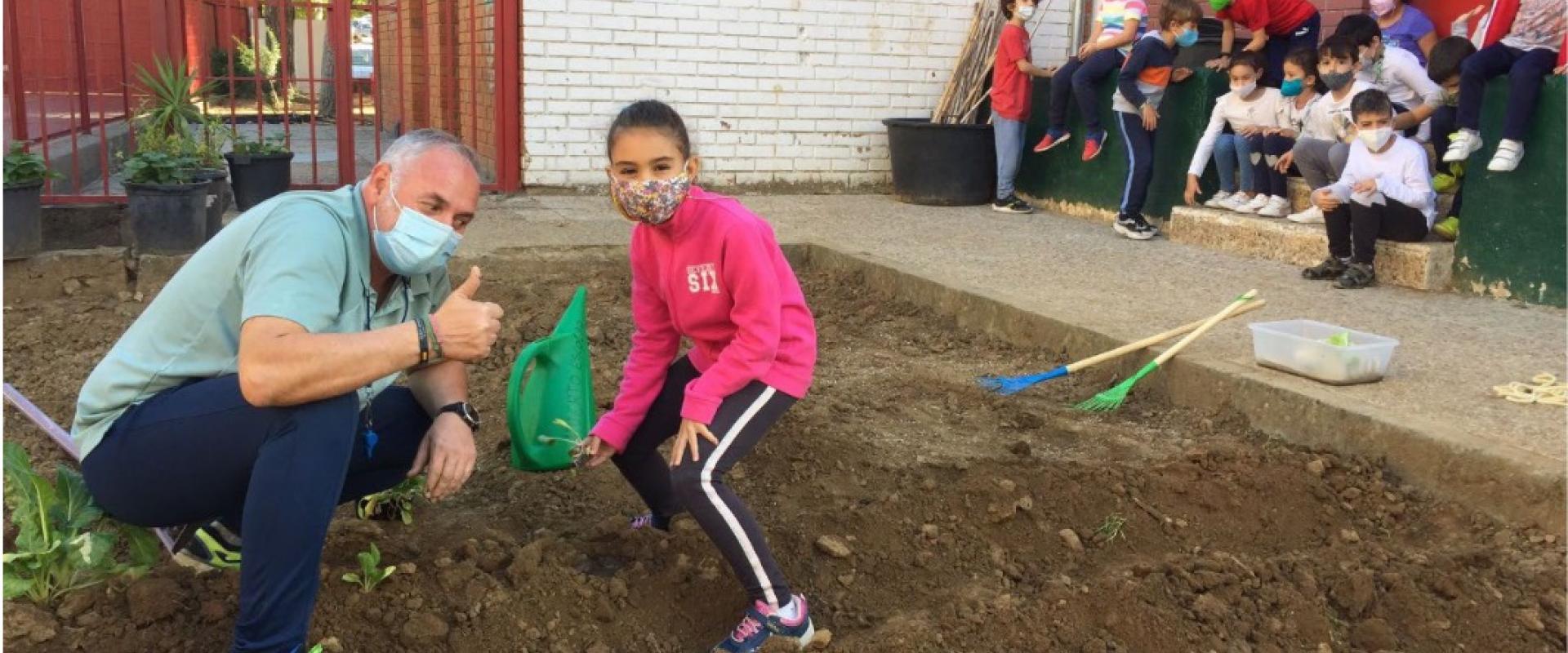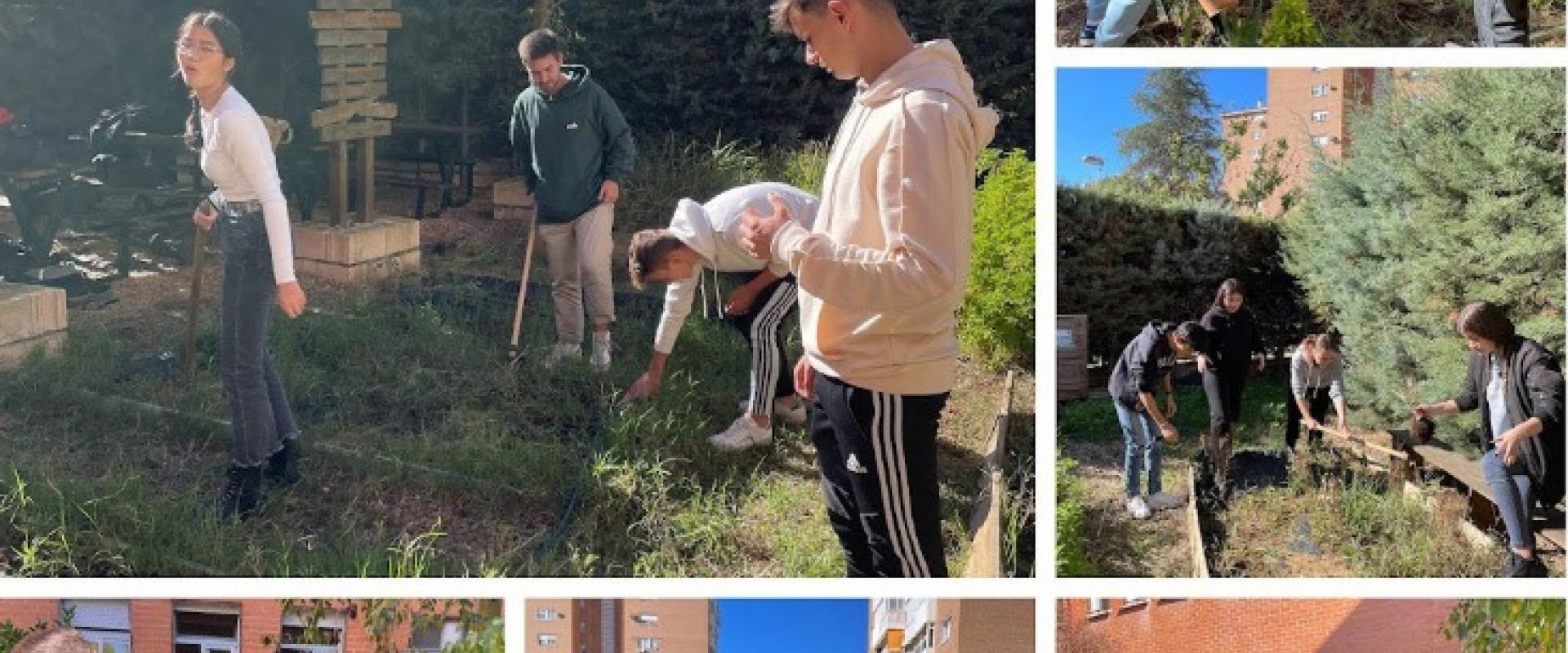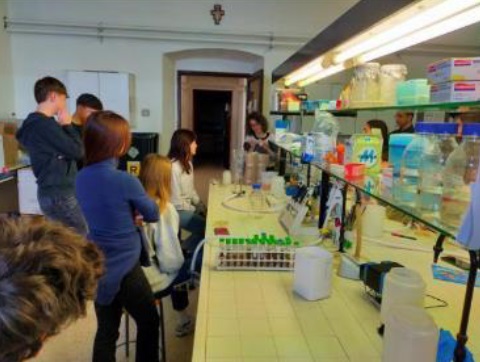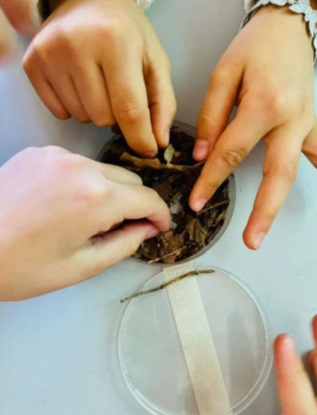Learning in the open air
LEARNING IN THE OPEN AIR is a joint project between Los Glacis Nursery and Primary School (organic school garden) and Maestro Domingo Cáceres Secondary School (ecogarden).
Description
Age of pupils: secondary school
Not so long ago, the city centre of Badajoz was surrounded by vegetable gardens. Small market gardeners were legion in a city that had in these small family farms a vegetable pantry that supplied them with top quality products throughout the year. But those vegetable gardens were disappearing and today there are many families who have little to do with the land and agricultural work, a distancing from the countryside that this initiative seeks to cover. It is a project that aims to involve the entire educational community and thus reach many homes.
It all started with two lorries of soil arriving at both schools from the fertile farmlands of the Guadiana River plains. The main objective of this innovative Educational Project is to promote the awareness and training of students in Environmental Education activities, aiming for an educational practice that combines both the acquisition of knowledge and key skills that help us to care for and repair our planet (soil, air, water). We are talking about an inter-school "umbrella" project within which active environmental practices have been developed since 2019 as a pedagogical tool.
Each school year, the group of teachers who form part of this initiative meets and new proposals are presented, thus giving rise to a list of new activities to be developed. In this context, the soil and its care take on a special relevance. Preparing the land, removing weeds, arranging the irrigation system, planning the sowing, planting and sowing, harvesting; these are activities that are repeated season after season, and year after year, and in which the pupils of both centres collaborate. But "Learning in the open air" is, as we mentioned before, something else. Below are some of the activities that have been carried out in the framework of the organic school garden and the eco-garden:
- HEALTHY LIVING HABITS: Observation, collection and study of products from the school garden;
- FRIENDS OF THE EARTH: It is really important in autumn to have the soil prepared for sowing and planting raw materials. This is the work that all 5th grade pupils have been doing, as well as doing maths and geometry exercises with the ultimate aim of promoting and contributing to healthy eating habits;
- CASER INTERGENERATIONAL MEETING: Visit of some elderly people from the Caser Residence for the Elderly. In close collaboration with the therapist of the elderly centre, the students prepared the visit both to the organic school garden and the ecogarden, sought advice on pests and crops, and listened attentively to the advice of the elderly. In this way, they also worked on social and intergenerational skills;
- CARING FOR OUR ENVIRONMENT: A rubbish removal campaign was carried out in the school playground in a bilingual version (Spanish and Portuguese). The aim is to raise awareness so that we all take care of our environment and keep it clean with the aim of taking this gesture everywhere. Raising awareness among students and contributing to the achievement of the 2030 SDGs were some of the results obtained;
- CREATING TERRACES: the pupils created terraces for the vegetable garden and filled them with topsoil. Some of the objectives of this activity were to get to know the vocabulary of a vegetable garden, worked on both in the classroom and in the school garden;
- NUTRITION, GARDEN AND COOKING: The topic of nutrition was studied in class, and in the open classroom (gardens) they put into practice what they had seen in class, through oral presentations and active work. Some pupils voluntarily extended the activity by cooking some of the products collected in the garden at home, thus completing the food cycle.;
- SCHOOL GARDEN MEETING: Intergenerational meeting of pupils from Los Glacis, Maestro Domingo Cáceres and the Faculty of Education and Psychology of the University of Extremadura. Activities included hiking and flora & fauna observation. Other specific garden activities and a laboratory workshop on observation of living beings with electronic magnifying glasses were also carried out;
- REFORESTATION OF THE GARDEN: Repopulating the flowerbed area of the entrance garden with plants from the forest nurseries of the Extremadura Regional Government (white rockrose, ivy, mint, rosemary, chamomile border and various species of thyme) with specific activities such as weeding, aerating and turning the soil, planting and raking;
- HIGUERA DE VARGAS... NATURAL PARADISE: Activities in the natural environment such as hiking routes, visits to old buildings, use of new technologies applied to the natural environment, native flora & fauna, agricultural and livestock work, active visit to a rural vegetable garden and discussion with the area's natural environment agent. Improvement of knowledge and general active practice in environmental activities. Expansion of resources in the natural environment and their direct contact. Progress in learning to learn, social and civic competences, digital
competence and awareness, and cultural expressions; - WE MAKE COMPOST: Explanation of the importance of recycling some organic waste to make compost, not only as a contribution to the soil and plants, but also for its benefits for society in general. Work has been carried out to clean and adapt the centre's compost bin, which was in
- poor condition, separate the waste (dry and wet) from the garden, and determine the optimum conditions for setting up a vermicomposter (fine-grained natural compost with excellent properties, which improves the characteristics of the soil, making it more permeable to water and air, increases moisture retention and regulates the storage and release capacity of nutrients that affect plants);
- AUTUMN SOWING WITH GRANDPA SABAS: Explanation and improvement of the school garden area by Grandpa Sabas, preparation and care of the soil, sowing of the autumn garden and terraces. Progress in learning to learn. Very favourable intergenerational experience where a grandfather of a pupil from the school showed us seeds, plants, compost, tools related to the environment and ecological gardens. Active practice of the students;
- EXPERIENCE GREENHOUSE: Research, create, develop and make a greenhouse with products from the summer garden in winter. Study and observation of the whole process by the students.
In short, it is a project that allows students to get to know and be in contact with nature from the urban environment, as well as raising awareness of the need to take care of the environment: our soil, our air, our water; from a sustainable and ecological point of view.
